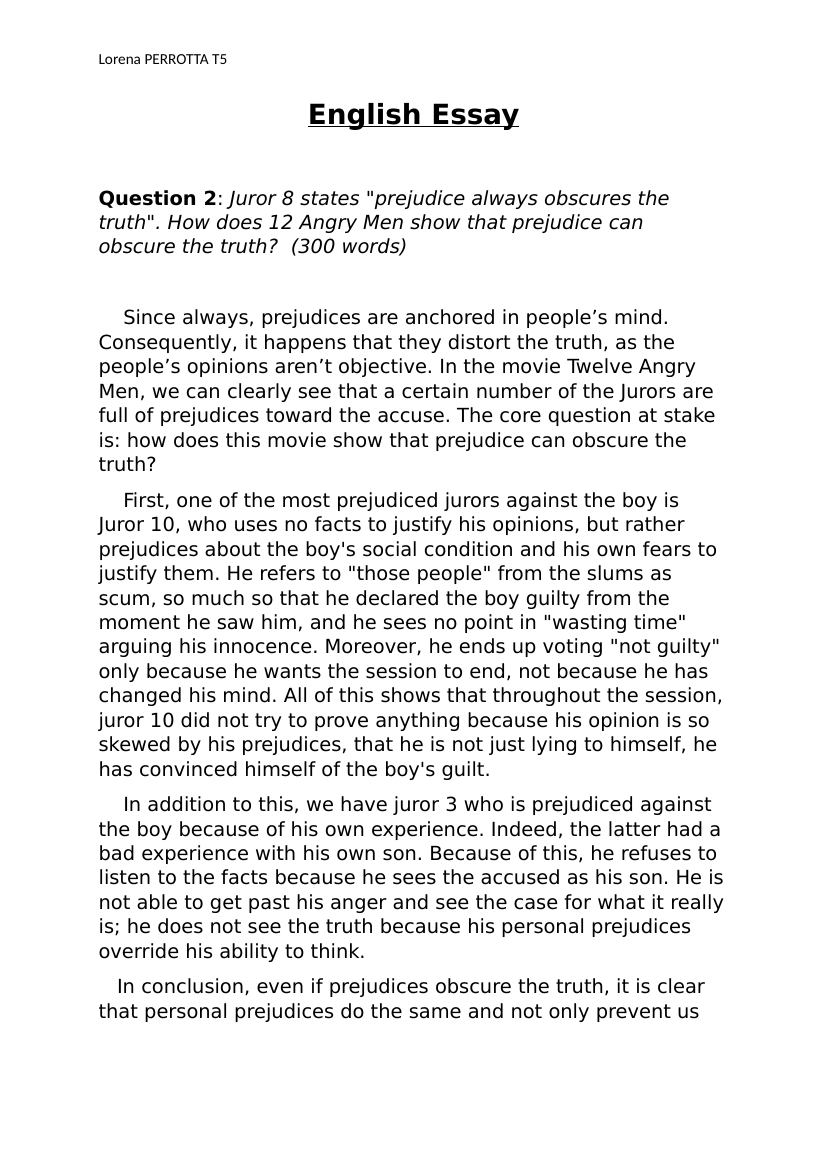12 Angry Men: prejudices always obscures the truth
Publié le 03/05/2021

Extrait du document
«
Lorena PERROTTA T5
English Essay
Question 2 : Juror 8 states "prejudice always obscures the
truth".
How does 12 Angry Men show that prejudice can
obscure the truth? (300 words)
Since always, prejudices are anchored in people’s mind.
Consequently, it happens that they distort the truth, as the
people’s opinions aren’t objective.
In the movie Twelve Angry
Men, we can clearly see that a certain number of the Jurors are
full of prejudices toward the accuse.
The core question at stake
is: how does this movie show that prejudice can obscure the
truth?
First, one of the most prejudiced jurors against the boy is
Juror 10, who uses no facts to justify his opinions, but rather
prejudices about the boy's social condition and his own fears to
justify them.
He refers to "those people" from the slums as
scum, so much so that he declared the boy guilty from the
moment he saw him, and he sees no point in "wasting time"
arguing his innocence.
Moreover, he ends up voting "not guilty"
only because he wants the session to end, not because he has
changed his mind.
All of this shows that throughout the session,
juror 10 did not try to prove anything because his opinion is so
skewed by his prejudices, that he is not just lying to himself, he
has convinced himself of the boy's guilt.
In addition to this, we have juror 3 who is prejudiced against
the boy because of his own experience.
Indeed, the latter had a
bad experience with his own son.
Because of this, he refuses to
listen to the facts because he sees the accused as his son.
He is
not able to get past his anger and see the case for what it really
is; he does not see the truth because his personal prejudices
override his ability to think.
In conclusion, even if prejudices obscure the truth, it is clear
that personal prejudices do the same and not only prevent us.
»
↓↓↓ APERÇU DU DOCUMENT ↓↓↓
Liens utiles
- Alfred Jules Ayerné en 1910Professeur à Oxford, puis à Londres, doit sa réputation à deux ouvrages sur la philosophieanalytique : Language, Truth and Logic (1936) et The foundations of empirical knowledge (1940).
- Hanif Kureishi - The Buddha of Suburbia
- does the end justifies the means
- the handmaid's tale: How far do you agree that Margaret Atwood makes resistance central to THT?
- Why men loves ****** intro


